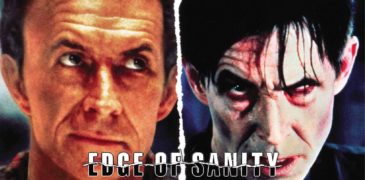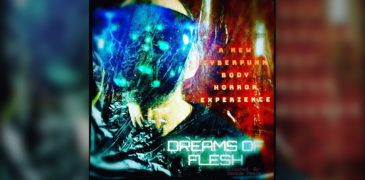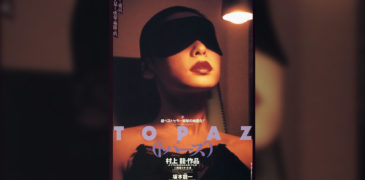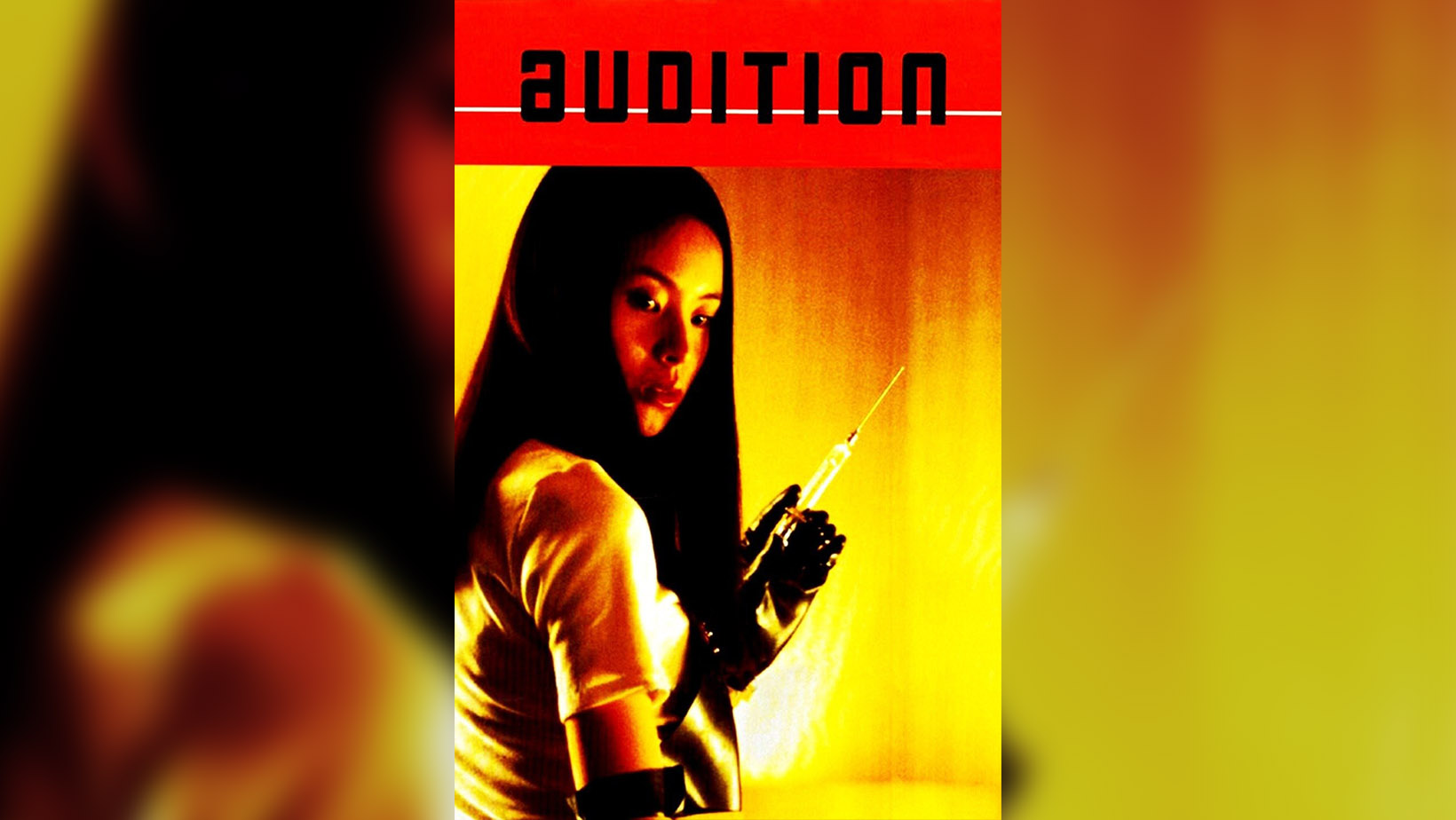
Audition (1999) is the scariest movie of all time. I say that without hesitation or hyperbole. No other director is as effective with their imagery as Takashi Miike is here, and no other film elicits fright as consistently on a tenth viewing as the first.
The film is a delightful descent into madness executed nigh to perfection. Opening in a hospital where our protagonist, a loving husband, and father named Aoyama, watches his wife passes away from illness. Only seconds later, his son, Shigehiko, arrives holding a gift for his mother. It’s a cheap sympathy ploy, one to be expected in horror of far less stature. But in Audition, it sets the stage masterfully. We start with Aoyama at an absolute nadir. The film lulls you into a false sense of security that things can only go up from here.
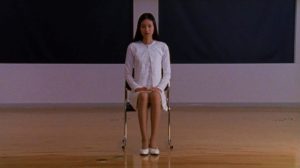
Years later, Shigehiko thinks his father should remarry, but Aoyama has still yet to moved on. He confides his troubles to his friend, Yoshikawa, who uses his position as a film producer to stage a fake audition. Rather unscrupulous for a sympathetic widow, the audition grants Aoyama the opportunity to interview women he otherwise wouldn’t meet. He lacks confidence after leaving the dating pool for so long, and Yoshi’s scheme puts him in an unfair position of power to compensate.
Here is where the film’s moral character gets complicated. Aoyama is depicted as a nice, pleasant family man undeserving of such heartbreak, yet he agrees to a plan to defraud women for their company. The ‘Me Too’ movement has since shone a light on the horrific nature of such a power imbalance, and the film can be viewed as aging poorly in that regard.
But this is far too simplistic of an analysis. Traditional androcentrism would view the film as the ultimate dating nightmare, a horror story for men afraid of psychos, stalkers, crazies, or any other label used to denigrate women who expect more from their partners. Audition works in the opposite manner. The nice guy seemingly has no qualms about this situation he has advanced, and the film’s progression is retribution for such casual acts of sexual dominance. It’s the Japanese Fatal Attraction, a film about gender disparity with a villain who isn’t technically wrong. Aoyama’s behavior in Audition is piggish. He deserves to be called out on it.
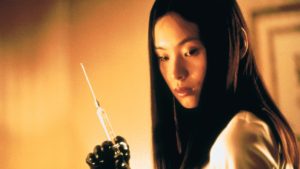
What’s wonderful about horror is that its violent fantasy is simply an outlet. There are doubtless many women in such imbalance who may daydream of calling out their tormentors in similar ways. To flip the script is to neuter the male viewer, a thought terrifying to those in real life who may seek the control wielded by Aoyama. Those who relate most to the film need to change not for their personal safety, but because a certain level of justice for it is warranted. Women are failed so often by legal systems unequipped to deal with the reality of predatory behavior. Audition doesn’t outright condone such vengeance, but it doesn’t question its merits, either.
Then why is the villain so, well, villainous? We relate to Aoyama throughout, following him through his tragedy, sorrow, and eventual hope. We care for his safety, and the intense dread of the film is predicated on the danger that he faces. If women are meant to be empowered, why is the empowerment so horrific?
Because Aoyama reflects the worst of patriarchal culture. Male viewers may see themselves in him, not in his tragedy, but in his actions. Those who pursue relationships in a power imbalance may not give a second thought as to whether what they’re doing is wrong, so why should their avatar? What transpires then are the acts of a sympathetic villain, their actions terrifying because they confront the viewer with a horrible reality.
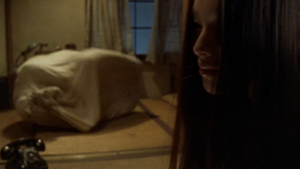
These intentions aren’t exactly subtle. An abusive background coupled with previous relationship trauma molded our villain into an enactor of vengeance against Aoyama. The more one struggles against a system of oppression, the more they are viewed as an animal for their resistance. Audition simply highlights this fact, serving as the backlash against patriarchy that failed the antagonist one too many times.
To be certain, this intense focus on subtext is not meant to imply the absence of any other terror. The film approaches its perspective on power structures with a fascinating construction well-deserving of analysis, but it all fails so spectacularly without Miike’s dreamlike direction. Events are assembled in impossible sequences that rob us of our certainty in a jarring fashion, disorienting viewers to the point that what is seen cannot be trusted. When the gradual hints of horror suddenly turn to the transgressive, it’s difficult to trust our eyes. Our brains are still too busy processing how we got here to fully accept what happens. This discomforting ambiguity is only annihilated by the insanity of the film’s climax, which confirms without a doubt that no, our eyes did not deceive us. That is until they do it again.
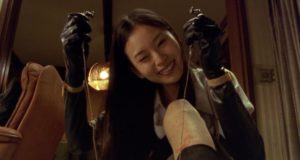
But I dare not say more. In truth, I’ve already said too much. This is a film that deserves to be seen with no frame of reference whatsoever, and I can only take solace in the fact that most who read this will have already seen it. With that, I offer this final thought, once again at the risk of hyperbole, but with confidence that there is none to be found: Audition (1999) is the apex of J-horror, and I don’t think it’s particularly close.
That is not a denigration of the genre. It’s acclaim for just how brilliant this hauntingly creepy film actually is.
More Film Reviews
I am a fan of found footage films, but let’s be honest, they’re mostly hit or miss. Only a few actually stand out among the sea of “Blair Witch” copycats… Dorothea is a 2025 true crime thriller written and directed by Chad Ferrin. Best known for his recent flurry of horror thrillers, Chad is notable for creating Pig Killer (2022),… Edge of Sanity is a 1989 American slasher horror, directed by French director Gérard Kikoïne in one of his last films in the director’s chair. The story combines elements from… Dreams of Flesh is a 2024 sci-fi horror, written and directed by Davide Pesca with additional writing from Fabrizio Pastura. The film is the third and final installment in the… Tokyo Decadence, also known as Topaz or Dreams of Topaz, is a 1992 S&M pinku drama, written and directed by Ryû Murakami. Although seen as a cult classic in Japan,… Ghost Lab is a supernatural Thai horror that has an extraordinary, unique story accompanied by a massive twist. However, it has an unnecessarily long run time of almost two hours!…Puzzle Box (2023) Film Review – A Found-Footage/Liminal Nightmare
Dorothea (2025) Film Review – Landlady From Hell
Edge of Sanity (1989) Film Review – Anthony Perkins Exploitation Classic
Dreams of Flesh (2024) Film Review – VR Therapy
Tokyo Decadence (1992) Film Review – The Decadence of Man
Ghost Lab (2021) Film Review – A Scientific Ghost Horror from Thailand


